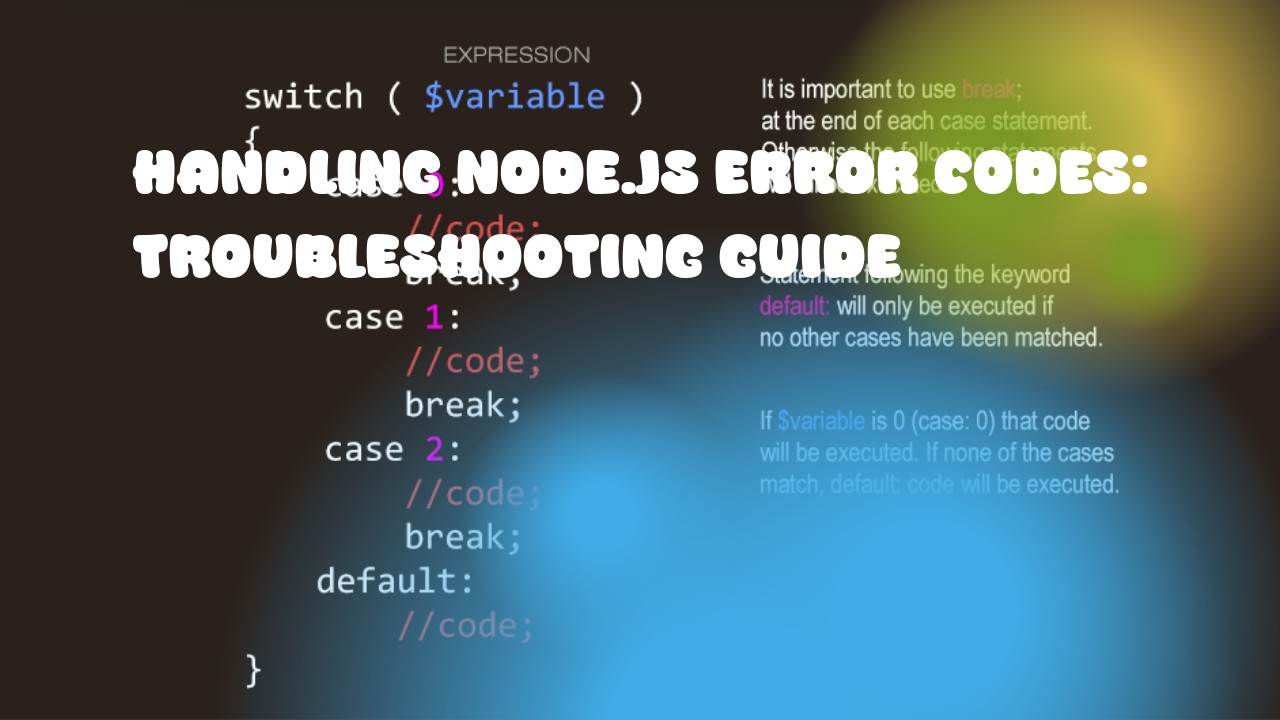In JavaScript and Node.js, error handling is crucial for robust applications. Understanding the error codes can help in determining the root cause of an issue and take appropriate actions to resolve it. Here's a guide on how to handle Node.js error codes effectively:
Error Code Basics:
Node.js uses its built-in Error object to throw exceptions. When an error occurs, it gets thrown as an instance of the Error class. Error objects come with two properties: name and message. The name property contains a brief description of the error type (e.g., "TypeError"), while the message property provides more specific details about what caused the error.
Common Node.js Error Codes:
- ReferenceError - Occurs when an attempt is made to access a variable that has not been defined.
- SyntaxError - Indicates that there's a syntax error in the code, such as missing parentheses or semicolons.
- TypeError - Thrown when an operation or function is performed on an inappropriate data type.
-
RangeError - Occurs when a number is outside of an allowable range (e.g.,
array[100]). -
URIError - Thrown when the global
decodeURI()orencodeURI()functions are given an illegal URI.
Handling Node.js Errors:
- Catch and Log Errors Properly: Use try-catch blocks to catch errors and log them for debugging purposes.
- Use Error Codes: When throwing or catching errors, consider using error codes to provide more context about the problem.
- Provide Meaningful Error Messages - Craft meaningful error messages that help identify the root cause of an error.
-
Handle Asynchronous Errors: Ensure all asynchronous operations are properly handled by using promises or callbacks with error-first callbacks (
(err, result) => {...}).
Example Code:
try {
// Attempt some operation that might throw an error
throw new ReferenceError('Undefined variable');
} catch (error) {
console.error(`Caught an error: ${error.name}: ${error.message}`);
}
Conclusion:
Proper error handling in Node.js is essential for building robust applications. By understanding the basic concepts, common errors, and effective error handling strategies, you can write code that is more reliable, maintainable, and easier to debug.

